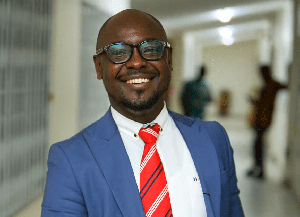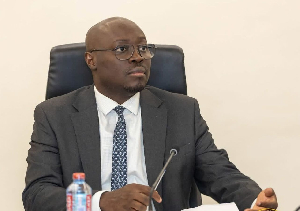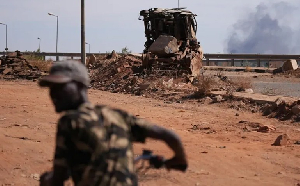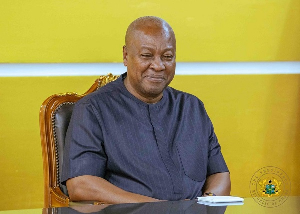The government on Monday took another major step in its search for a permanent peace in the Dagbon Traditional Area when it opened a two-day Dagbon Peace and Consultative Workshop at Akosombo that seeks to reconcile the two sides together and consolidate other initiatives.
Dubbed the "Akosombo Initiative", the Minister of Defence, Dr Kwame Addo-Kufuor said the workshop is one of two more initiatives the government has lined up to support its efforts as well as those of other agencies in attempts to find a permanent solution to the crisis triggered by bloody clashes in March last year that led to the murder of the overlord of Dagbon, the Ya Na. Some 30 people also died in the fighting.
Dr Addo-Kufuor, who is also the Acting Minister of the Interior, said he could not reveal the second initiative at this stage because of its delicate nature.
The "Akosombo Initiative" seeks to build on the previous initiatives by bringing representatives of the two gates as well as key government and civil society organisations together to consult among themselves and help design a comprehensive peace building process for Dagbon for the consideration by the government. Furthermore, the Akosombo Initiative seeks to create a common platform for the harmonization of the inputs of the participants so as to come up with innovative solutions to the peace building process in Dagbon," Dr Addo-Kufuor said.
The Minister recounted efforts that the government has made so far to let permanent peace return to the area. These include several visits to the area by ministers, parliamentarians, religious groups, security agencies, NGOs, a UN Committee specialising in conflict resolution and the President's appointment of a committee of three eminent traditional rulers to help restore peace.
Dr Addo-Kufuor said as a result of these initiatives, "One has observed certain hopeful signs indicative of desire to reconcile in certain groups within the traditional area, especially in certain youth groups."
Dr Addo-Kufuor repeated government's appeal to the two gates to be tolerant with each other to enable the judicial process to bring the guilty to book. He said at the same time institutions in the traditional areas which are responsible for providing health to the sick, education for the youth, agricultural inputs and extension services to farmers, social services to the community at large and commercial and industrial activities are given the chance, in a peaceful and stable environment, to operate for the people.
Dr Addo-Kufuor reiterated that government has no special attachment to either gate in the crisis and does not stand to gain anything from the crisis. He said it is therefore, important that all parties directly involved in the conflict should dispel any negative preconceived ideas to make it possible for a solution to the problem to be found.
General News of Monday, 3 February 2003
Source: .
Another Step In Dagbon Peace Process
Entertainment











